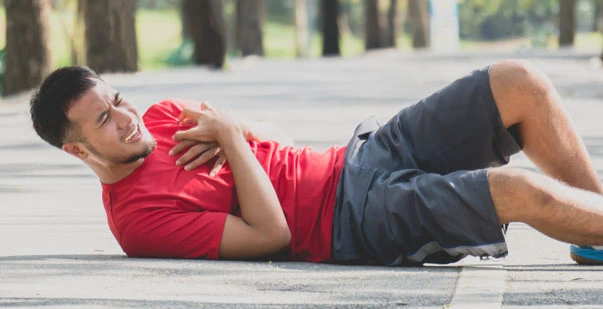
Last Updated On: septiembre 25, 2024
Do you like going outside and having fun in nature? That’s awesome! But have you ever wondered what it takes to stay safe while exploring the great outdoors? Well, one of the essential things outdoor enthusiasts should consider is taking life-saving courses. These courses, offered by the American CPR Care Association (ACCA), can equip you with the skills and knowledge necessary to handle outdoor medical emergencies effectively. Let’s delve into the reasons why these courses are so important for outdoor enthusiasts like you!

Spending time outdoors is a blast! You can go hiking, camping, swimming, biking, or even exploring nature trails. There’s something for everyone! But keep in mind, accidents can occur when we least expect them. That’s why it’s crucial to be prepared for any unforeseen situations, especially medical emergencies.
When we are having fun outside, sometimes accidents happen and people can get hurt or feel sick. We might encounter outdoor medical emergencies that require immediate attention. It is important to know what to do if something like that happens. Here are some things that could happen and what they mean:
Sometimes we might trip or slip and hurt ourselves. It can be painful, and we might have cuts, bruises, or broken bones.
Some people are allergic to certain things, like certain foods, bee stings and pollen. If they come in contact with those things, their bodies might have a bad reaction, and they could have trouble breathing or get a rash.
When it’s hot outside, and we don’t drink enough water or rest, our bodies can get too hot, and that’s called heatstroke. It can make you feel very sick, dizzy, and you may even pass out.
Sometimes we might touch something hot, like a stove or a campfire, and get burned. Burns can hurt a lot and make our skin red, blister, or even peel.
While exploring nature, we might come across animals like snakes or bears. If we don’t know how to act around them, they could hurt us.
These situations might seem scary, but having the knowledge and skills to respond appropriately can make all the difference. If we learn what to do and how to help, we can make a big difference and keep ourselves and others safe. That’s why it’s essential to take life-saving courses!
To be better prepared for outdoor medical emergencies, you should consider taking life-saving courses. Let’s explore a few of these courses and how they can assist you:
First Aid courses are crucial for outdoor enthusiasts. First Aid courses teach you how to provide immediate care to someone who is injured or suddenly falls ill. You’ll learn how to handle bleeding, fractures, burns, sprains, and even perform CPR (cardiopulmonary resuscitation). You’ll learn to handle injuries caused by falls, cuts, bites, hypothermia, and other emergencies. These skills can be a lifesaver when help is far away.
Cardiopulmonary Resuscitation (CPR) and Automated External Defibrillator (AED) courses are essential skills to have in case someone’s heart stops beating. These techniques can be vital in saving lives during emergencies like cardiac arrests. With CPR and AED training, you will be able to confidently perform chest compressions and use defibrillators until medical professionals arrive.
BLS certification is like an advanced version of CPR and first aid training. It teaches you even more skills to help people in serious medical emergencies. You learn how to do CPR on adults, children, and babies, and how to use special tools to help with breathing. BLS certification is great for outdoor enthusiasts because it gives you extra knowledge to handle different situations.
If you want to learn how to save lives, you can take special courses with the American CPR Care Association. They have several courses that teach you important skills to help people who are hurt or sick. In these courses, you will learn first aid, CPR and AED training. You will learn how to do chest compressions. By taking these courses, you can gain the skills and knowledge to be a lifesaver in emergency situations.
Outdoor adventures are incredible, but being aware of potential medical emergencies is crucial. By taking life-saving courses, such as First Aid, CPR/AED and Basic Life Support, outdoor enthusiasts can gain the skills needed to respond effectively in emergency situations. These courses equip you with the knowledge to handle injuries, illnesses, and even save lives. Remember, safety should always come first, no matter where your outdoor adventures take you. Stay prepared, stay safe!